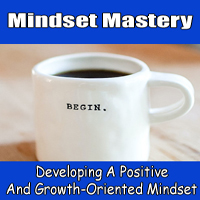


Building Resilience And Finding Growth

Life is a journey filled with twists and turns, and at every corner, we encounter challenges that test our resilience and strength. Whether it's a personal setback, a professional hurdle, or an unexpected life change, how we cope with challenges can significantly impact our well-being and personal growth. In this article, we'll explore the importance of coping with challenges and the strategies that can help us not only endure them but also emerge stronger.
Challenges Are Inevitable: First and foremost, it's crucial to recognize that challenges are an inherent part of life. They are not something to be avoided or feared but to be accepted as opportunities for growth. Whether it's a difficult relationship, a health issue, a career setback, or a global crisis, challenges come in various forms and sizes. Embracing this reality is the first step in learning to cope effectively.
Building Resilience:
Resilience is the ability to bounce back from adversity, and it is a key component in coping with challenges. Resilient individuals possess the strength to adapt and grow in the face of difficult circumstances. To build resilience, consider these strategies:
Positive Mindset: Cultivate a positive outlook, focusing on opportunities and solutions rather than dwelling on problems.
Seek Support: Lean on your support network, whether it's friends, family, or a therapist. Sharing your challenges can provide emotional relief and fresh perspectives.
Self-Care: Prioritize self-care practices like exercise, mindfulness, and adequate sleep to maintain your physical and mental health.
Learn From Adversity: Every challenge carries valuable lessons. Reflect on what you've learned from past obstacles to grow and evolve.
Set Realistic Goals: Break down your challenges into manageable steps, setting achievable goals that keep you motivated.
Embrace Change: Accept that change is a constant part of life. Adaptability is a significant part of resilience.
Finding Growth Through Challenges: Challenges often provide an opportunity for personal growth. When we overcome difficulties, we become more resilient, gain wisdom, and develop a deeper understanding of ourselves. Challenges can also reveal hidden strengths and talents we might not have discovered otherwise.
Acceptance And Perspective: Coping with challenges also involves acceptance and a shift in perspective. Sometimes, we cannot change our circumstances, but we can control our response to them. By accepting the situation and focusing on what we can influence, we gain a sense of empowerment.
Coping with challenges is an essential life skill that can lead to personal growth and resilience. Rather than viewing challenges as insurmountable obstacles, consider them as opportunities to learn, adapt, and become a better version of yourself. While it's not always easy, with the right mindset and support, you can navigate challenges and emerge from them stronger and more resilient. Remember, the journey through challenges is an integral part of the human experience, and it's what shapes us into the individuals we become.


 Understanding The Distraction-Procrastination Connection: Distractions are one of the main culprits that lead to procrastination. They provide an easy escape from tasks that may seem daunting or less enjoyable. By giving in to distractions, we inadvertently delay our important responsibilities, which, in turn, reinforces the procrastination cycle.
Understanding The Distraction-Procrastination Connection: Distractions are one of the main culprits that lead to procrastination. They provide an easy escape from tasks that may seem daunting or less enjoyable. By giving in to distractions, we inadvertently delay our important responsibilities, which, in turn, reinforces the procrastination cycle.
Strategies For Managing Distractions:
Identify Distraction Sources: The first step in dealing with distractions is to identify their sources. Take note of the specific distractions that tend to interrupt your work or tasks. Common sources include smartphones, social media, email, or noisy environments.
Create A Distraction-Free Workspace: Designate a workspace where distractions are minimized. This could be a quiet room, a well-organized desk, or a dedicated workspace in a library or coffee shop.
Turn Off Notifications: One of the most effective ways to manage distractions is to turn off non-essential notifications on your devices. This prevents your phone or computer from constantly vying for your attention.






The Art Of Finding Inner Peace
 The frenetic pace of modern life, driven by our dependence on technology, often leaves us feeling overwhelmed, anxious, and disconnected from ourselves. The demands of work, social media, and a perpetual sense of busyness can erode our mental and emotional well-being. It's in these moments of chaos that the need for solitude becomes most evident.
The frenetic pace of modern life, driven by our dependence on technology, often leaves us feeling overwhelmed, anxious, and disconnected from ourselves. The demands of work, social media, and a perpetual sense of busyness can erode our mental and emotional well-being. It's in these moments of chaos that the need for solitude becomes most evident.
Solitude is not about isolation or loneliness; it's about intentionally carving out time for self-reflection and rejuvenation. In the midst of our hurried lives, moments of solitude offer a retreat from the noise and chaos, allowing us to connect with our inner selves and regain a sense of balance.
Embracing solitude allows us to dive deep into self-discovery. It provides an opportunity to explore our thoughts, emotions, and desires without external distractions. In the stillness of solitude, we can better understand our values, passions, and purpose in life. It's a time for introspection, where we can ask ourselves important questions, such as, "Am I living a life true to my beliefs and desires?" and "What do I truly value?"
Moreover, solitude nurtures inner peace. It's a sanctuary where we can find respite from the constant noise of the world. In these moments, we can let go of stress, worries, and the pressure to be constantly productive. The serenity found in solitude allows us to recharge and regain our emotional balance.
Unlocking Your Full Potential
 The Importance Of Self-Belief
The Importance Of Self-Belief
Empowerment: Self-belief empowers individuals to pursue their goals and dreams. It instills a sense of agency and control over one's life, enabling the pursuit of aspirations and ambitions.
Resilience: People with strong self-belief tend to be more resilient in the face of adversity. They view setbacks as temporary and surmountable, using them as stepping stones for growth.
Positive Self-Image: Self-belief contributes to a positive self-image. When individuals believe in themselves, they are more likely to take care of their physical and mental well-being, which, in turn, reinforces their self-esteem.
Risk-Taking: Self-belief encourages calculated risk-taking. It allows individuals to step out of their comfort zones, explore new opportunities, and take on challenges that may have seemed daunting otherwise.
Building Self-Belief
Positive Self-Talk: The way you talk to yourself matters. Replace self-criticism with self-encouragement. Acknowledge your accomplishments and focus on your strengths.
Set Realistic Goals: Start with achievable goals and gradually work your way up. Each successful achievement will boost your self-belief.
Overcome Fear Of Failure: Understand that failure is a part of life. Rather than fearing it, see it as a valuable learning experience. Embrace failures as opportunities for growth.
Learn From Experience: Reflect on your past accomplishments and challenges. Recognize how your self-belief has played a role in your successes.
Surround Yourself With Positivity: Spend time with people who support and uplift you. Negative influences can erode self-belief, so choose your company wisely.
Continuous Learning: Invest in your personal growth and skills. Expanding your knowledge and abilities can boost your confidence.
Harnessing The Inner Voice For Success And Well-Being
 Understanding Self-Talk
Understanding Self-Talk
Self-talk encompasses the thoughts, beliefs, and interpretations we make about ourselves, our experiences, and the world around us. It can be both positive and constructive or negative and self-sabotaging. The content of our self-talk often reflects our self-esteem, self-confidence, and the beliefs we hold about our abilities and worth.
Positive Self-Talk
Positive self-talk is characterized by constructive, supportive, and optimistic inner dialogue. It involves encouraging oneself, acknowledging achievements, and offering solutions to challenges. People with positive self-talk tend to be more resilient and motivated, as they see setbacks as opportunities for growth rather than as failures.
Negative Self-Talk
Negative self-talk is self-defeating and critical in nature. It often involves self-doubt, self-criticism, and a focus on perceived weaknesses or mistakes. This type of self-talk can erode self-esteem, hinder self-confidence, and contribute to stress and anxiety.
The Impact Of Self-Talk
Self-talk profoundly affects various aspects of our lives:
Emotional Well-Being: Self-talk influences our emotions. Positive self-talk can boost self-esteem and happiness, while negative self-talk can lead to anxiety, depression, and a sense of hopelessness.
Behavior And Actions: The way we talk to ourselves can motivate or demotivate us. Positive self-talk can drive us to take action, set and achieve goals, and persevere through challenges. Negative self-talk, on the other hand, can lead to procrastination, self-sabotage, and a fear of failure.
Relationships: The tone and content of our inner dialogue can affect our interactions with others. Positive self-talk can lead to better communication, empathy, and healthier relationships. Negative self-talk can result in defensiveness and insecurity, hindering our ability to connect with others.
Keys To Self-Awareness And Personal Growth
 The Role Of Self-Awareness
The Role Of Self-Awareness
Self-awareness is the ability to observe and understand one's own thoughts, emotions, and behaviors. It is a vital component of personal growth because it enables individuals to recognize their behavioral patterns and make conscious choices about how they respond to different situations.
The Significance Of Recognizing Behavioral Patterns
Improved Relationships: Understanding your own behavioral patterns allows you to better understand the behaviors of others. This insight can lead to improved communication and empathy in your relationships.
Effective Problem-Solving: Recognizing patterns in your decision-making process can help you make more informed and effective choices. Identifying past mistakes can prevent their repetition.
Stress Management: Knowing how you typically react to stress can help you develop healthier coping mechanisms. It can lead to a reduction in stress-related health issues.
Personal Growth: Identifying limiting or destructive behavioral patterns is the first step toward personal growth. Once you're aware of these patterns, you can work on changing them.
Recognizing And Managing Behavioral Patterns
Self-Reflection: Take time for self-reflection. Regularly analyze your thoughts, emotions, and behaviors. Journaling can be a valuable tool for this process.
Seek Feedback: Ask for feedback from trusted friends, family members, or colleagues. They may provide insights into your behavioral patterns that you might not be aware of.
Identify Triggers: Pay attention to the situations or triggers that lead to specific behaviors. Recognizing these triggers can help you prepare for and manage your responses more effectively.